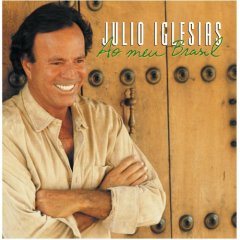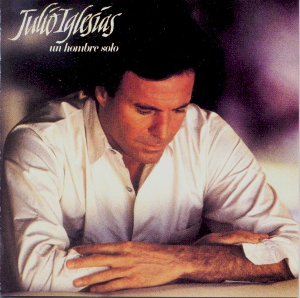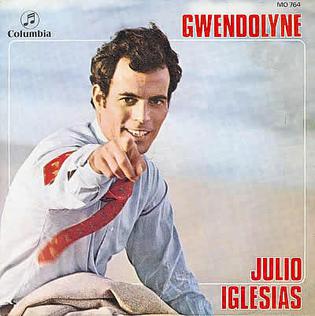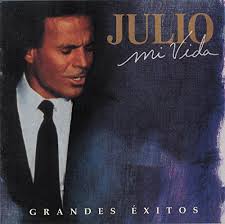
Ao Meu Brasil is an album by Julio Iglesias released on December 18, 2001 by Sony International. Iglesias sings all the songs in Portuguese.
Mamonas Assassinas was a Brazilian satirical rock band. Their musical style employed a humorous mixture between rock and a wide range of styles, often borrowing elements from other music, among which were the main riff of the Portuguese Vira ("Vira-Vira"), Northeastern Brazilian rhythms like forró, Mexican music, heavy metal, sertanejo, and even pagode.

The MTV Video Music Brazil awards, more commonly known as VMB, were MTV Brasil's annual award ceremony, established in 1995. MTV viewers picked the winners for most categories since 2001.

Alexandre Pires do Nascimento is a Brazilian singer-songwriter. Pires was previously the singer of group Só Pra Contrariar which he joined in the late 1980s.

Un hombre solo is a Julio Iglesias album released in April 1987. It achieved worldwide success. The album was composed, arranged and produced by Manuel Alejandro. In 1988, it won the Grammy Award for Best Latin Pop Album.The album was released in LP, CD and Digipack format, with 2 editions: worldwide and Brazil. He received platinum distinction in different countries like: Argentina (8×); Mexico, Colombia, Chile, Spain, Brazil (5×); Venezuela and Sony Discos (4×).

António Joaquim Fernandes, known as Roberto Leal, was a Portuguese singer, songwriter and actor. He sold more than 17 million albums, and received 30 golden records and 5 platinum records.

Bruno & Marrone are a Brazilian sertanejo duo from Goiânia.

"Sonífera Ilha" is the debut single by Brazilian rock band Titãs, released in 1984. The song, as well as its b-side "Toda Cor", was co-composed by Ciro Pessoa, one of the lead singers and founding members of the group, who would leave the band before the release of their first, self-titled album, in which the single and the b-side were included. "Sonífera Ilha" is among a few of Ciro's contributions to Titãs.

Sergio Bavini, known as Sérgio Reis, is a Brazilian sertanejo singer, actor and politician. He has sold approximately 16 million copies of his more than 40 album releases.

Julio José Iglesias de la Cueva is a Spanish singer, songwriter and former professional footballer. Iglesias is recognized as the most commercially successful Spanish singer in the world and one of the top record sellers in music history, having sold more than 100 million records worldwide in 14 languages. It is estimated that during his career he has performed in more than 5000 concerts, for over 60 million people in five continents. In April 2013, Iglesias was inducted into the Latin Songwriters Hall of Fame.

Fábio Correa Ayrosa Galvão, known as Fábio Jr. or Fábio Júnior, is a Brazilian singer, songwriter and actor. Since 1976 he has recorded an album nearly every year.

"Lo Mejor de Tu Vida" is a ballad written and produced by Spanish singer-songwriter Manuel Alejandro, co-written by Marian Beigbeder, and performed by Spanish singer Julio Iglesias. It was released as the first single from his studio album Un hombre solo (1987). The song became the first by a male performer to spend 13 weeks at number one in the Billboard Hot Latin Tracks chart and held the record for the biggest leap to the top of the chart for over twenty years until Mexican rock band Maná leapt from 22 to number one with "Manda Una Señal" in 2007.
"Que No Se Rompa la Noche" literally "May the Night not Break", is a ballad written and produced by Spanish singer-songwriter Manuel Alejandro, co-written by Ana Magdalena, and performed by Spanish singer Julio Iglesias. It was released as the second single from his studio album Un hombre solo (1987). This song became his second number one hit in the Billboard Hot Latin Tracks chart, after his previous single "Lo Mejor de Tu Vida".

"Gwendolyne", sometimes spelt "Gwendoline", is a song composed and recorded by Spanish singer Julio Iglesias, co-written by Leo Johns. It is best known as the Spanish entry at the Eurovision Song Contest 1970, held in Amsterdam.

La Carretera is a studio album by Julio Iglesias. It was released in 1995. It was nominated for Pop Album of the Year at the Lo Nuestro Awards of 1996.

Noche de Cuatro Lunas is a 2000 album by Julio Iglesias.

Mickael Carreira is a Portuguese pop singer and songwriter. He is most famous for his ballads and the romanticism of his songs made him one of the best selling artists in Portugal. In total, his albums were certified platinum nine times. Over the course of his career, Mickael has collaborated with such international artists as Anggun, Enrique Iglesias and Sebastián Yatra.

Mi Vida: Grandes Éxitos is a double-CD greatest hits album by Julio Iglesias, released in 1998 on Sony Discos.

My Life: The Greatest Hits is a double-CD greatest hits album by Julio Iglesias, released in 1998 on Columbia Records.

"Agua Dulce, Agua Salá" is a song from Spanish singer Julio Iglesias's studio album La Carretera (1995). The song was written by Estéfano, Donato Poveda, and Hal Batt and produced by Ramón Arcusa. It was released as the lead single from the album in 1995. A rumba flamenca, the song deals with the theme of life. The song received positive reactions from music critics, mostly being found catchy by them. It was a recipient of the ASCAP Latin Award in 1996. Commercially, the song peaked at number three on the Hot Latin Songs chart and number one on the Latin Pop Airplay chart in the United States. A music video for the song was filmed in Spain and features Fabiola Martinez. Iglesias also recorded it in Portuguese as "Água Doce, Água do Mar" for his studio album Ao Meu Brasil (2000).


















